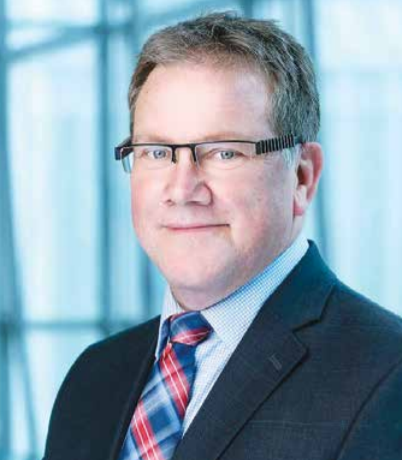
The news out of China was worrisome in late 2019. By the last day of December, alarm bells were ringing: a new and frightening disease seemed to be rearing its head.
In very early 2020, the world was riveted on a virus that would be named COVID-19 — and no one more so than Volker Gerdts, director and CEO of Vaccine and Infectious Disease Organization (VIDO) in Saskatoon.
“By early January, we were all following it and the news showed more and more cases,” he said in an interview. “In the first week of January, I thought, mmm, this is not good. This could be another SARS.”
Of course, he was right, and then some. He and VIDO’s lead research scientist, Darryl Falzarano, jumped on investigating this ominous new virus.
“When the (virus) sequence was released by the Chinese colleagues, I met with Darryl and that afternoon he and I decided we need to get going on a vaccine for it,” Gerdts said.
“He designed the vaccine that afternoon and started ordering the necessary things for it.”

Vaccineand Infectious Disease Organization
(VIDO) in Saskatoon.
Five weeks later, they had created a vaccine in the VIDO lab. Falzarano was the first scientist in Canada to isolate the virus from the first Canadian patient to contract COVID, which got the ball rolling. They created an animal model to test in ferrets, and once that proved promising, went through the regulatory hoops to test the vaccine, named COVAC-2, in humans.
The hours for the VIDO staff were long and arduous, particularly from June until November last year, Gerdts noted. A great number of evenings and weekends were spent in the lab.
Then the vaccine trial involving 108 subjects began in February at the Canadian Center for Vaccinology in Halifax, and VIDO has just received samples from the human volunteers to evaluate their immune response — to see if antibodies have been created. Phase two testing is expected to follow in hundreds of volunteers.
It’s an incredibly exciting time for the VIDO team. Should the vaccine prove effective, it will provide other benefits as well: for example, it does not need to be stored at ultra-cold temperatures as the RNA-based vaccines like the Pfizer must be. Gerdts hopes it will be available in early 2022.
“We envision this can be used annually or in a boost. We’re also looking at this vaccine as a potential candidate for low- and middleincome countries. Our vaccine would have many advantages like storage and transportation for places like Africa.”
He is also thrilled about the latest news for VIDO: the federal government dedicated $59.2 million to the organization in the recent budget, a major piece of funding to create Canada’s Centre for Pandemic Research. (VIDO had already received $35 million from the federal and provincial governments for vaccine development.)
Of the new funds, $46.2 million will go toward building a new animal facility; the remainder will fund a level four laboratory building (the highest containment level), “allowing us to work with any new pathogen. We will have the capacity to respond to any new disease immediately.”
Gerdts became VIDO’s leader very shortly before the pandemic emerged. Originally from Hamburg, Germany, he holds a German PhD equivalent from the Federal Research Institute for Animal Health, Island of Riems and Hanover Veterinary School.
He first came to VIDO soon after achieving his degree as a postdoctoral fellow in July 1998, on a stipend from the German Research Council. The first phase was to be spent abroad, and the second phase was back in Germany. He returned to establish a research group, but then VIDO called him two years later.
“Then the former director, Lorne Babiuk, called and said, ‘what do we have to do for you to come back?’” Gerdts recalled. “I had a very good postdoc here. I really enjoyed the experience here, enjoyed living in Canada, in Saskatoon. They offered me a scientist position, the leadership of a neonatal immunization program for children and young animals. I was interested in leading that, and that was how I decided to leave everything in Germany and come back to Canada.”

He stayed. He started as a research scientist and was promoted to program manager, leading research on one of VIDO’s biggest grants from the Gates Foundation. It was his first exposure to a huge international effort that could potentially change people’s lives for the better.
Then he became director of research in 2007, and CEO in January 2019 when the former CEO, Andrew Potter, left VIDO.
Despite the long hours, however, he does strive for work-life balance. He met his wife when he returned to Canada, and they purchased 80 acres in the RM of Dundurn, where they planted 8,000 trees and built a home. They seed the land to hay and sell it to horse owners in the area. “I love being outdoors, especially in the long summer nights. Driving my tractor and cutting hay . . . or just going for a walk out there is what I really enjoy.”
They also have three children; a son aged 10 and two daughters, six and five.
“That’s the biggest challenge for all of us (at VIDO),” he said. “Honestly, we love our jobs so much we could work 12 hours, 14 hours every day and love it, but finding the balance so the family still gets their share too is the challenge for all of us.”
VIDO has played a huge role in vaccine development and animal health ever since its inception, and is already a world leader in some aspects of its work. However, its COVID response and the need for Canadian pandemic preparedness brings it to the cusp of a new level of importance, both nationally and globally.
“This is the fulfillment of VIDO’s vision,” Gerdts said. “Now having a centre on campus as one of the key players – that’s the vision I always had in mind and (we’re) seeing becoming a reality now. “The other element is the human.
Now we’re building one of the most outstanding institutes in the world and now we have to fill it with the most outstanding scientists in the world.” Indeed, he expects the staff to grow from the present 150 to 250 over time.
“We’re heavily recruiting right now, looking for the best people we can get. We’re taking VIDO to the next level from an expertise and reputational point of view. It’s really playing in another league.”
-Joanne Paulson

Leave a Reply